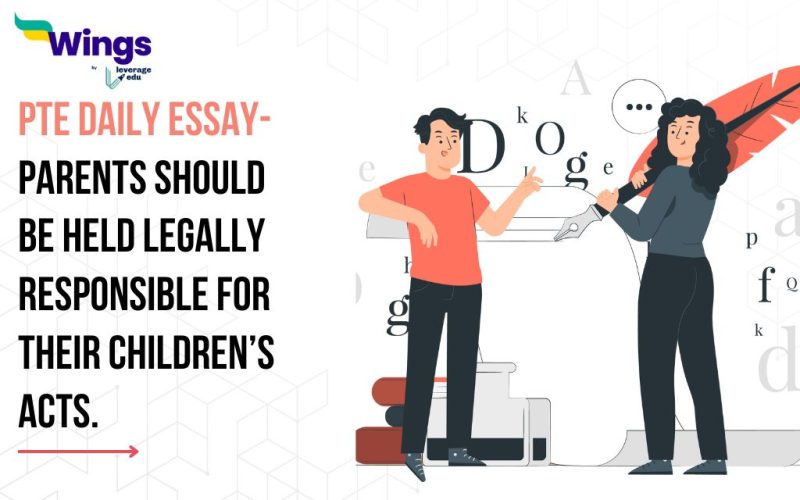Q. Parents should be held legally responsible for their children’s acts. What is your opinion? Support it with personal examples.
Ans. In recent times, the escalating concern over juvenile violence has sparked a crucial debate surrounding parental accountability for their children’s actions, particularly within a specific developmental window. In my perspective, parents should unquestionably be held responsible for their children’s actions.
Parenthood carries a weighty mantle, encompassing the provision of basic needs, educational guidance, and safeguarding children against harm. Additionally, a critical parental role is the inculcation of moral values and societal norms. Through ethical instruction, parents equip their children to navigate the social landscape – a landscape governed by laws and order that necessitate individual sound judgment, reason, and informed decision-making. During a child’s formative years, parental influence plays a significant role in shaping adherence to established values and norms. Positive behaviors are reinforced, while those deviating from expectations are subject to correction.
However, the legal landscape in many countries recognizes the limitations of parental control. Legislative frameworks exist to hold parents accountable for their children’s misconduct, acknowledging instances where parental neglect contributes to deviant behavior. For example, in India, the law stipulates parental responsibility for education and provision until the child reaches adulthood. Furthermore, legal repercussions can be incurred if a parent observes and fails to address violent tendencies in their child. This underscores the concept of “reasonable care,” demanding a demonstrably responsible approach to child-rearing.
In conclusion, parents are the primary architects of moral guidance during a child’s formative years, and thus, they undeniably bear responsibility for any misconduct. It is imperative that they strive to raise good-natured individuals, recognizing the profound impact of their guidance on the character and behavior of their children.
Are you preparing for PTE Exam? Check out the blogs below to bolster your chances of securing better scores in the PTE exam.
Download the Leverage App today.


Need help preparing for PTE? Check out the best PTE preparation courses in the market offered in a live training environment by trusted educators in a live training environment. If you want to help studying abroad, call 1800-572-000.
 One app for all your study abroad needs
One app for all your study abroad needs















 45,000+ students realised their study abroad dream with us. Take the first step today.
45,000+ students realised their study abroad dream with us. Take the first step today.